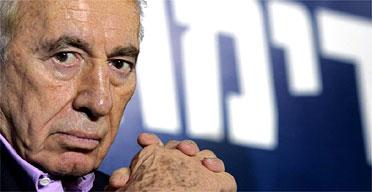Dr. Can-Do turns 90
It didn’t always work. Moshe Dayan rejected Peres’ suggestion to conduct a showcase nuclear test (yes, “according to foreign sources”) with the aim of frightening Egyptian President Gamal Abdel Nasser and preventing the Six-Day War. Ariel Sharon sent Peres to negotiate with the Palestinians in 2001, and then threw out the draft agreement he had reached with Ahmed Qurei that was aimed at dousing the flames of the second intifada. Prime Minister Benjamin Netanyahu sent him on a similar mission to Palestinian Authority President Mahmoud Abbas three years ago.
Peres lacked two things that characterized the greats of the founding generation, Ben-Gurion and his rival Menachem Begin: He did not have a consistent ideology and he had a hard time swaying the masses. Peres championed action and compromise, and generally avoided public struggles on behalf of unpopular positions. He preferred working in the corridors and always favored being part of the government, even in a marginal position, rather than sweating in the political desert.
He has impressive rhetorical abilities, but they arouse admiration, not the ecstatic devotion inspired by Begin and Ben-Gurion. That’s why they fashioned the state and left legacies far greater than those of any other prime ministers. In recent years, President Peres has won the public’s love, which had been withheld from him during his years of contending for office and political battles, but it has been more of a consolation prize.
Still, last year Peres mustered his courage and publicly called on Netanyahu and then-Defense Minister Ehud Barak to refrain from attacking Iran’s nuclear facilities. Netanyahu and Barak, who knew that Peres planned to make a public statement on the matter, went to the President’s Residence and tried to convince him to remain silent. But Peres didn’t give in, and his intervention halted the gallop toward war, only a week after Ari Shavit’s interview with “the decision-maker” appeared in Haaretz and was widely perceived as a battle order for the Israel Air Force. Millions of Israelis who got through that fateful summer without missile barrages or funerals owe him (and U.S. President Barack Obama) their lives.
His intervention in the Iranian issue, at the right time and using the right tone, brought Peres back to his old role as Dr. Bar-Bitzua. Once again he was at his best, managing the boss and maneuvering the prime minister into accepting his position. When Peres celebrates his 90th birthday at this week’s President’s Conference in Jerusalem, many will titter − justifiably − at his pursuit of honors, but it will also be an opportunity to credit him with the many problems he solved at crucial points in the nation’s history.
Aluf Benn

